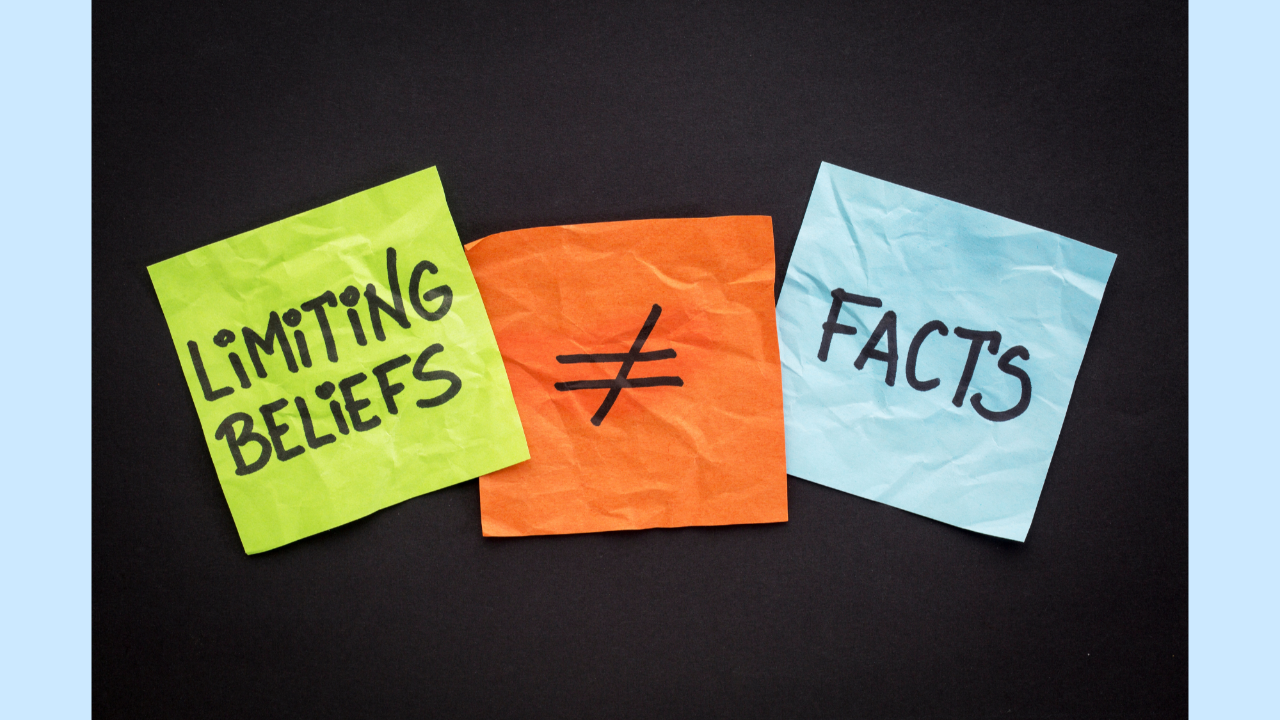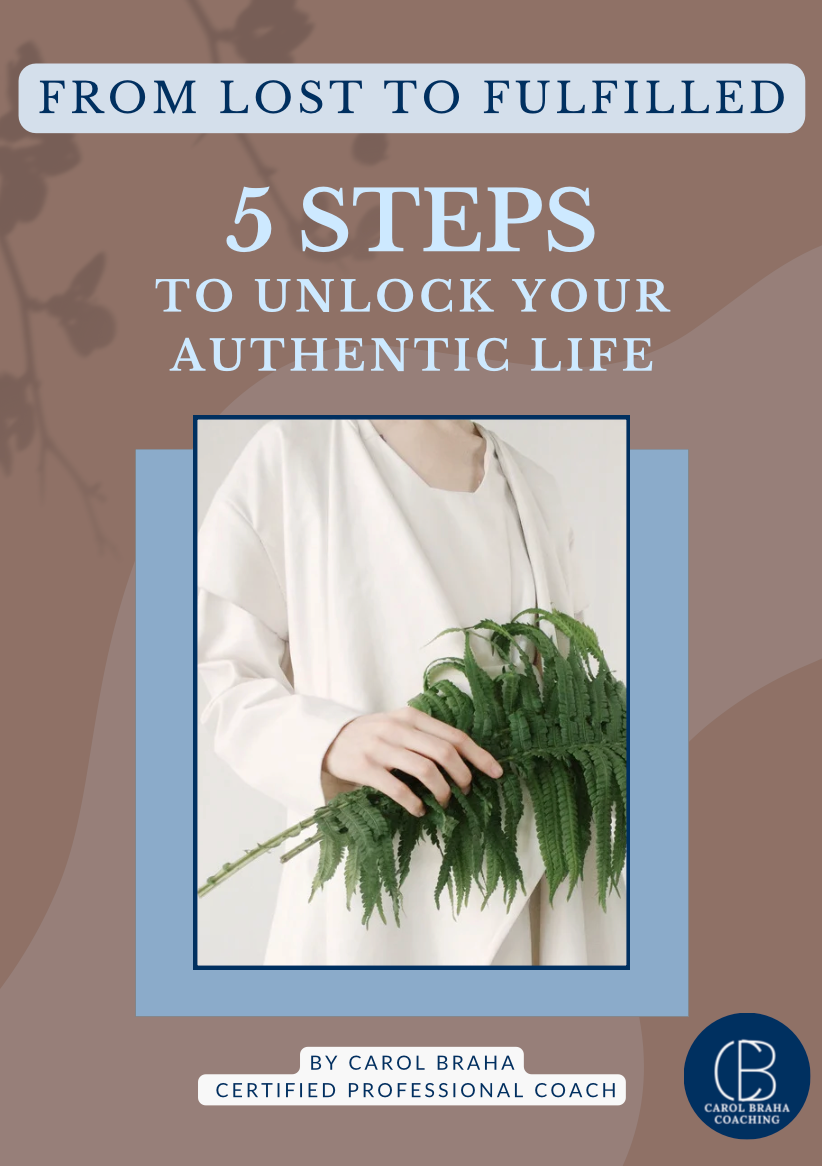The Loss of Your Authentic Self: How You Strayed So Far From Your True Self

Introduction: Being Your Authentic Self Isn't As Easy As it Sounds
Authenticity, the act of embracing your true self, may sound straightforward, but it's often a complex and challenging journey. Most people are not living authentically, but rather as a version of themselves molded by societal norms and expectations. To truly comprehend authenticity and what it means to live authentically, it's essential to understand how you deviated so far from your authentic self and in essence, lost your true to yourself. That’s what we’ll explore in this article.
Losing Your Authentic Self Starts Young
When you are born, you are born free. You express yourself in the small ways that you can, without worrying what anyone has to say about it. However, almost immediately, people start telling you how to act, what you can and cannot do, should and should not do, often without very much explanation as to why it is that way, but simply because it is the way the world is; it is what is accepted and expected. And slowly, you learn to stop expressing yourself in your true way, and instead to listen to them.
For example, at a young age, you are taught that girls like pink and boys like blue. Why? Because society says so. And so, as a young girl, you have two options: choose pink as your favorite color and bask under the approval of your choice, or express your preference for blue, green, or orange, and repeatedly hear that this is the "wrong" choice, because "all girls like pink," and "pink is for girls!"
While having a favorite color seems like such a small and trivial thing, it is just a minor example of how at a young age you are taught not to look within for a preference, but rather to outsource your preferences to what other people approve of. You very quickly learn that your life is not about expressing your truth (being your authentic self) but rather about matching the expression others tell you to express (burying your authentic self to please others). Society does not foster true self expression, but rather a following of the herd, leading you to lose sight of your true identity. At a very early age, you learn that other people’s voices should take precedence over your own and are encouraged to abandon your authentic self and inner voice for them.
Authority Figures Reward You for Burying Your Authentic Self
Throughout your young years, as a toddler and into childhood, both at home and in school, authority figures reward you for pleasing them and obeying them, and punish you when you fail to meet their expectations. As a result, you continue to learn to listen to what others say instead of to your own inner voice; after all, you are a child who wants to be loved, and they love you most when you listen to them. With this natural desire for love, praise, connection, and approval, you fall into the habit of relying on the guidance of external voices telling you how you “should” behave, rather than our own intuition. The disapproval you receive when you listen to your inner voice and the approval you receive when you listen to the outer voices reinforces your decision to listen to those around you instead of to your authentic self. You learn to quiet the voice within in order to obey the rules of the outside world. You trade in your authenticity for approval, and are repeatedly told that is the right thing to do; you are a “good girl” for burying your inner voice and listening to society’s voice instead.
Fitting In: Peer Pressure’s Effect on Authenticity
The longing for acceptance and approval extends beyond your relationship with authority figures to your relationship with your peers. Your peers inherit the societal biases of their parents, learning what makes someone “normal” or “weird.” To avoid ridicule or exclusion, you sacrifice your uniqueness, striving to conform, to be "normal." You adopt the same interests, behaviors, and preferences as others, suppressing your individuality in the process. Your authenticity fades as you mold yourself in the image of admired figures.
Teachers encourage this conformity. “All the kids do X, but Susie does Y; this is concerning,” they say to Susie’s parents. And so, Susie's parents and teachers push her to do X, to be like the others instead of like her true, authentic self. It’s difficult and it doesn't feel right to Susie, but she wants to be loved and accepted, and therefore goes along with X, even though it goes against her internal dialogue telling her she’d like to do Y. People applaud as her uniqueness is cast aside and she begins to act like everyone else. There, she learns that her differences are undesirable, and her spark, the one that makes her who she is, begins to burn out. She moves farther and farther from her authentic self.
Seeking Sameness in Adolescence: Hiding Your Authentic Thoughts, Feelings, and Desires
In adolescence, the struggle to conceal your authentic self intensifies as your body undergoes transformative changes. These physical alterations set you apart, and the desire to blend in intensifies. Society's idealized models all share the same physique, reinforcing the notion that being different is undesirable. In pursuit of conformity, you may resort to extreme measures, like restricting your diet, in the hopes of erasing your inherent uniqueness.
Your mind blossoms, giving rise to new thoughts and viewpoints. When you attempt to express these thoughts to your peers, they often respond with skepticism, labeling you as "odd." You become curious about life, yet sharing your questions with teachers yields dismissive replies, dismissing such questions as irrelevant diversions from the curriculum.
The surge of adolescent hormones may leave you feeling melancholic or confused. If you attempt to confide in someone about these feelings, he or she likely urges you to be thankful and optimistic, encouraging you to stifle your emotions of sadness. This reinforces the belief that your emotions are unwelcome, prompting you to bury them alongside your unspoken thoughts.
Throughout this transition from childhood to adolescence, you once again internalize the idea that standing out is isolating, often inviting judgment and scorn. Consequently, you cover up your individuality and adopt a facade, mirroring the actions and reactions of those around you. This path seems simpler, faces less resistance, but it comes at the cost of burying your authentic self once more.
Inauthenticity in Dating and Relationships
Seeking connection and wanting to be loved is a totally normal and natural thing. Your whole life, you’ve been told that to gain approval, to be loved, you must do the “right thing.” You internalize that message and seek the answer to this question: what is “the right way” to get love? How do you gain the approval and admiration of a romantic interest? You speak to your friends for guidance, search the internet, read books and magazines, look to movies and television shows to learn about love. And you do as they tell you to. While this facade may work to attract love, it often leaves you feeling empty, as your true self remains hidden. You yearn to express yourself and be seen, but fear being perceived as unattractive leads to self-censorship.
The Persistence of Inauthenticity into Young Adulthood and Beyond
In young adulthood, as you apply to colleges and choose your major, the need for approval and to “do the right thing” follows you. You often opt for practicality over passion, following paths recommended, respected, and admired by society. You get the Sunday scaries and wake up every morning with dread, but people tell you this is the way life is. Something inside of you tells you there must be more, that you can be more, do more, live more, but your friends and family tell you not to be ridiculous, that you should be happy, that you have a great job.
The pressure to conform to societal timelines and expectations drowns your inner voice. You get married because they tell you "it's time," have a child because you "should," and buy a house because "that's everyone's dream." You continue this way, straying from your true desires, until one day you look in the mirror and have no idea who that is staring back at you. That, my dearest, is because you have finally succeeded at society's aim: you have completely lost your true, inner, beautifully unique self.
The Biological Drivers of Inauthenticity: It’s Not All External
It's important to recognize that in addition to external influences, biological factors play a role in our authenticity struggle. You are hardwired to follow the herd—a survival instinct from ancient times. While this instinct was once essential, meant to keep our ancestors safe when they lacked the comforts and safeguards of modern civilization, this instinct to "seek safety in numbers," is no longer necessary, yet persists today and influences your decisions and actions. Acknowledging this instinct, and recognizing that it is an outdated software running in the background of your mind, frees you up to make the conscious choice to listen to your true self rather than follow the crowd.
Conclusion: Rediscovering Your Authentic Self
Now that you have a better understanding of where your authentic voice went, it should be clear that until you learn to live authentically, you will always feel lost. It’s important to get in touch with that true you that you buried inside of you in the hopes of gaining love, approval, and connection.
Embracing authenticity leads to profound well-being, self-acceptance, and improved relationships. It allows you to break free from societal molds, pursue your passions, and feel comfortable being you! To learn all about the benefits of living authentically, click here to read this article about ten reasons to live an authentic life.
To delve deeper into the effects of living inauthentically, check out our article on "Ten Detrimental Effects of Living Inauthentically: Reasons to Embrace Your True Self."
To learn practical steps for living more authentically, download my free authenticity guide here. You'll be guided through 5 steps to uncover your most authentic self.
For personalized guidance on your journey to authenticity, consider 1-1 authenticity coaching by clicking here.
Want more inspiration in your inbox?
Join the mailing list to get the latest blog posts, life coaching tips, and personal updates from Carol Braha Coaching.





